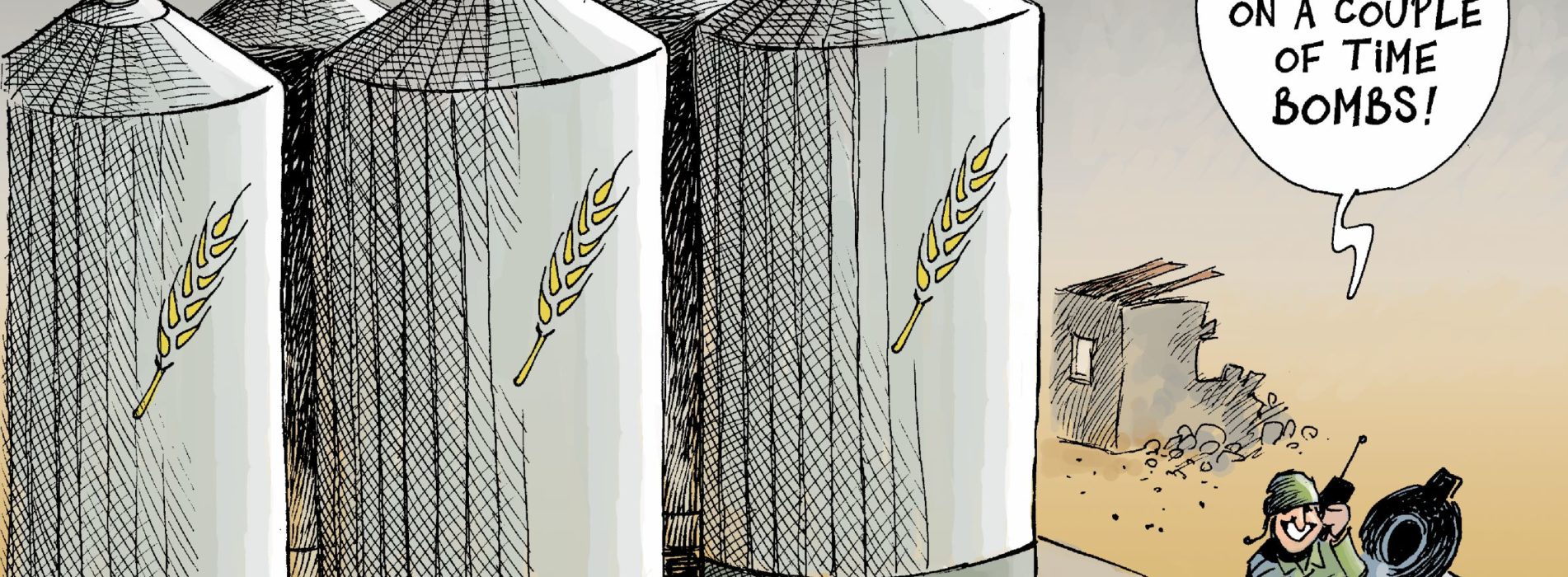The Weaponisation of Economics
PODCAST: China and the changing global economic landscape, with Sung Min Rho
Research Office, Geneva Graduate Institute. Globalchallenges.ch
© Chappatte dans NZZ am Sonntag, Zürich

Research Office, Geneva Graduate Institute. Globalchallenges.ch
What does the experience of combining art and science bring to the study of international relations? Why blend sensibility with reason to think about the evolution of the world? How does aesthetic and/or creative performance nourish the production of academic knowledge? If thinking about creation and integrating art with the Humanities and Social Sciences is nothing new, the challenges of the 21st century call for new analyses and creative approaches that give a voice to frequently neglected perspectives, and contribute to a more nuanced and multidimensional understanding of the world. The dialectic of art and research can be approached through the artistic dimension of the object of study, proximity to artists, experimentation with new forms of fieldwork and writing, or through the cultural mediation of the results. In this special issue of the digital magazine Global Challenges, jointly produced by the Graduate Institute of International and Development Studies (Geneva Graduate Institute) and the Centre de recherches internationales (Sciences Po), the contributors shed light on the role of art in research.
Soil is an essential component of the Earth’s ecosystem. It contributes to and fulfills a wide range of environmental and societal functions such as food production, water filtering, carbon storage and the preservation of biodiversity essential to the survival of the human species. While soils have witnessed significant environmental degradation in recent decades, lands have been the object of increased economic competition and financial speculation. The commercial and financial scramble for land has never been more intense as transnational actors and governments such as the Chinese seek large scale bids for land in the Global South that have been likened to new forms of neocolonialism. The consequences of this double tension include the loss of biodiversity, floods, climate change, famines, forced migration and conflict.
It is the assumption of the present Dossier that issues such as large scale exploitation of land and natural resources, soil degradation, biodiversity, food security and climate change are closely interdependent and cannot be treated in isolation. Seeking to explore and better understand the interlinkages between the material degradation of soils and the increased extractive, commercial and speculative pressure on lands, the Dossier aims to address some of the broader stakes the Anthropocene is currently facing: How irreversible is the damage that has been caused to earth’s soils? Have we reached a point of no return? How many people is the earth able to feed and for how long? Are we trapped in a Malthusian logic? How will climate change depend and interact with changing patterns of soil distribution and depletion? What is the impact of large scale deforestation and natural resource extraction on the environment, particularly the soils? What are the governance patterns and technological solutions emerging to address land depletion and scarcity? What are some of the cybernetic loops and mechanisms of autoregulation through which the earth reacts to human interference?
Has globalisation reached its apex after centuries of growth as suggested by the latest figures of the WTO? In the affirmative, does this imply that we are ushering into a new era of degrowth? Or are we witnessing the reorganisation of the very architecture of globalisation, which remains based on the twin logic of the acceleration and continuous increase of the volume of exchanges, as well as the steady densification of geographic connectedness. Are global exchanges restructuring concomitantly to the fourth technological revolution and the expansion of the digital economy? The present Dossier proposes to approach this question by observing the nature and the evolution of the principal flows that characterise globalisation.